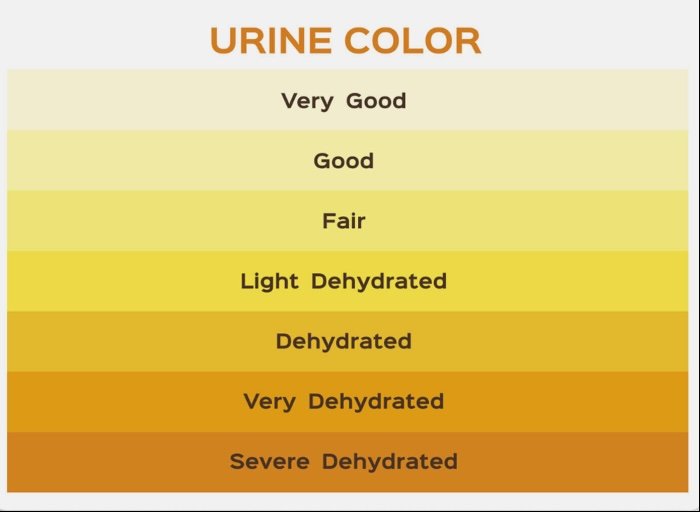If you struggle to read from a screen, listen to an audio of this blog here
Warning: this blog is covering a topic that is very personal. I am writing very much as a former nurse, used to touring a ward to check everybody’s fluid balance charts, trying to find out from people with impaired hearing when they last went to the toilet. (How many times have I winced as I heard, ‘Have you moved your bowels today?” bellowed across a ward?) I am also writing as that same nurse who knew precisely how much her patients had drunk and peed during a shift, but then realised she had not visited the bathroom for 8 or 9 hours herself. Often I had drunk just a carton of juice over a rushed lunchbreak, or had not had a break at all. And I wonder why my health crashed!
Sliding back into bad habits
As I write, asking how much you have drunk today, I notice that my water bottle, sitting in full view on my desk is still completely full at almost 11am. I have had a couple of cups of tea and a coffee, but I am suddenly conscious of feeling very thirsty. Keeping myself well hydrated has always been a challenge, and as I begin to explore my own neurodivergent traits, I am beginning to understand this better. Neurodivergent people often find it hard to recognise their body’s signals for water, food, rest, a need to pee. This is particularly the case when they are hyper-focused on a project, as I have been this morning. As with my nursing shifts, it is normal for me to finish a meeting, or spell of writing, and have to rush for the bathroom.
Although I am fully recovered, I still fall into very bad habits on this front. I know it is better to sip little and often, but I still find myself in boom and bust, getting thirsty and glugging large volumes. This then prompts my body to try and offload some of what it perceives as excess water quickly, and I continue to be dehydrated. I forget to drink during the day, top myself up in the evening and then complain to myself as I blunder to the bathroom at 2 in the morning, remembering how I lectured all those elderly patients who refused to drink. Again, how often did I hear, ‘I’ll just need to get up to the bathroom, hen.’
When I am at my busiest, my skin can become dry, my mouth parched and my body vaguely achy. I am much better now at noticing these subtle signals and revisiting old tricks to prompt more frequent sips. As with many areas of self-care, recovery means you are much better at it, but there is still maintenance work to be done on those healthy habits.
How much should I drink to support my recovery?
The NHS recommends 6–8 glasses or cups a day for an adult, which can include tea, coffee and milk. This is not an enormously helpful measure, given the variable size of cups, and many people’s reliance on water bottles. A tiny cup of espresso is hardly going to do you as much good as a lovely tall tumbler of iced water with a slice of lemon. In healthy terms, this guide translates into 1800–2400ml a day. On a hot day, if you have a cold, a urine infection or have been exercising heavily (we wish), you will need more. If you have an alternative therapy you may also need more. Many of them lower your blood pressure, creating thirst, fatigue and even headaches if you don’t compensate for that drop by drinking more. If you are worried about whether you are drinking enough, the best guide is to check the colour of your urine. It should be a pale lemon colour, so you are aiming for the top of the helpful chart at the top of this blog.
Although this chart shows all shades of yellow, it is possible to pee multiple colours. Beetroot can produce an alarming red, asparagus can create green, and even blue is possible with certain medications. Obviously, if you haven’t eaten beetroot or asparagus, anything other than yellow needs prompt medical investigation. I won’t go into past urology ward experiences of charts that ranged from Chardonnay through rosé to Burgundy.
Hydration as a first level self-care goal
Sometimes, we can become so used to coping with multiple symptoms that come and go, that we forget that simple dehydration makes many symptoms worse, and can be a cause of serious problems in itself. I have seen people delirious through simple lack of water. On a lower level, dehydration can cause a swollen tongue, dry mouth, cracked lips, headaches, confusion and brain fog, fatigue, low blood pressure, cold fingers and toes, muscle cramps, irritable eyes, dizziness and palpitations. In the longer term it contributes to constipation and digestive disturbances, dry skin, and also raises our risk of forming blood clots. Before we descend into catastrophising here, the good news is that a simple change of habits can be a way to improve many of the common symptoms of chronic exhaustion, and avoid others.
If, reading this, you realise that you are not well hydrated, why not frame this as an opportunity to set yourself some simple goals. It might be interesting, too to pay attention to how your symptoms change as you become better hydrated. A full fluid balance chart is not necessary, but keeping a note of how much you drink and the changes you notice can help you to stay motivated to keep drinking.
Tips for Keeping Yourself Hydrated
- Check in with how your body is feeling right now. Are you thirsty? When and what did you last drink? When did you last go to the bathroom?
- Set yourself a daily goal for fluid intake.
- Think about the obstacles to drinking your target amount, and how you might get past them.
- What will you do to reward yourself for hitting that goal?
- Fill a water bottle or two with the minimum you want to drink today. Carry it with you and place it somewhere visible as a prompt.
- Ask any people you live with to support you with gentle reminders, or even by bringing you drinks. My husband’s love language seems to be making cups of tea.
- If you still forget to drink, try a phone app with reminders. A quick search of the Apple and Google app store brought up several dozen, so there is something there whatever your preferences.
- Think about what you will enjoy drinking.
- Try to avoid sugary drinks like squash or fizzy drinks. The sugar plays havoc with your body and is a major driver of symptoms.
- If your tap water tastes bad, try adding some fruit to mask the flavour. Lemon or orange are great, but berries are good too, and you can keep a bag in the freezer to use as needed.
- Herbal or fruit teas can be drunk cold as well as hot. I love to fill a big cup with ice and then pour over tea made with mint or lemon balm leaves.



